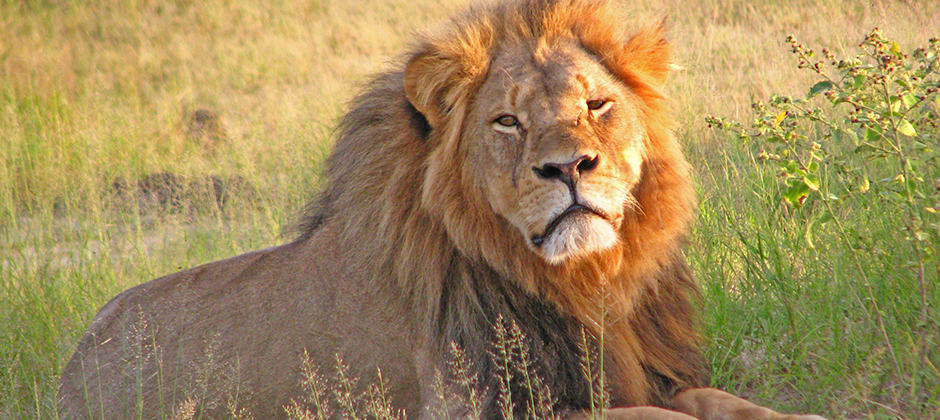Share this article
The Wildlife Society supports international hunting
The Wildlife Society, in partnership with over 30 other organizations, spoke out against the “Conserving Ecosystems by Ceasing the Importation of Large Animal Trophies (CECIL) Act” (H.R. 2245) in a letter to the leadership of the House Natural Resources Committee’s Subcommittee on Water and Wildlife. That subcommittee held a hearing on the bill last week.
The bill was developed in response to the infamous 2015 killing of a lion researchers named “Cecil” by an American hunter outside Hwange National Park in Zimbabwe. While the hunter had permits for the hunt, the taking of a radio-collared animal that had been followed by researchers for years, and was therefore well-known to the public, sparked international controversy.
The CECIL Act, introduced in April by Rep. Raul Grijalva, D-Ariz., would require hunters to obtain permits from the U.S. Fish and Wildlife Service for trophy imports of species proposed for Endangered Species Act listing as threatened or endangered. Currently, hunters must obtain permits to import species already listed as threatened or endangered. Permit fees would be increased under the bill, to ensure that the income from the fees covers the full costs of the Service’s trophy hunting import program.
The bill also would eliminate the International Wildlife Conservation Council, which was established in 2017 to provide advice to the Secretary of the Interior regarding issues such as anti-poaching programs, wildlife trafficking, and increasing the awareness of the conservation and economic benefits of United States citizens traveling to foreign nations to engage in hunting.
Finally, the bill would require the Government Accountability Office to undertake a new study on the effectiveness of trophy hunting in supporting international wildlife conservation efforts.
The letter from TWS and its partners warns that the “bill represents an ill-conceived attempt to substitute uninformed prejudices for the management strategies of the wildlife authorities successfully conserving the world’s largest populations of lions, elephants and other African species in their range countries.” It continues, “If implemented, H.R. 2245 would undermine some of the most effective strategies for conserving the world’s wildlife.”
Witnesses at the hearing were divided in their support of the bill. Some supported the bill, including Iris Ho from the Humane Society of the United States, who called it “a significant step towards ensuring that threatened and endangered species are afforded effective, necessary protections to secure their survival.”
Catherine Semcer, with the Property and Environment Research Center, said that “the CECIL Act, as written, will likely fail at accomplishing the shared goals of the United States and its African partners.” She also stated that “the import bans and increased permitting requirements of the CECIL Act would create and expand barriers and hurdles to market participation by U.S. hunters that can reasonably be expected to result in an overall decrease in” hunting participation.
The Department of the Interior declined to send a representative to testify.
The bill was previously introduced in the last two Congresses, although no hearings were held on it and it did not advance.
Read TWS’ January 2018 letter to the Trump Administration on trophy imports and the standing position on hunting.
Header Image: Cecil the lion, whose killing inspired the “Conserving Ecosystems by Ceasing the Importation of Large Animal Trophies Act.” ©Daughter #3








